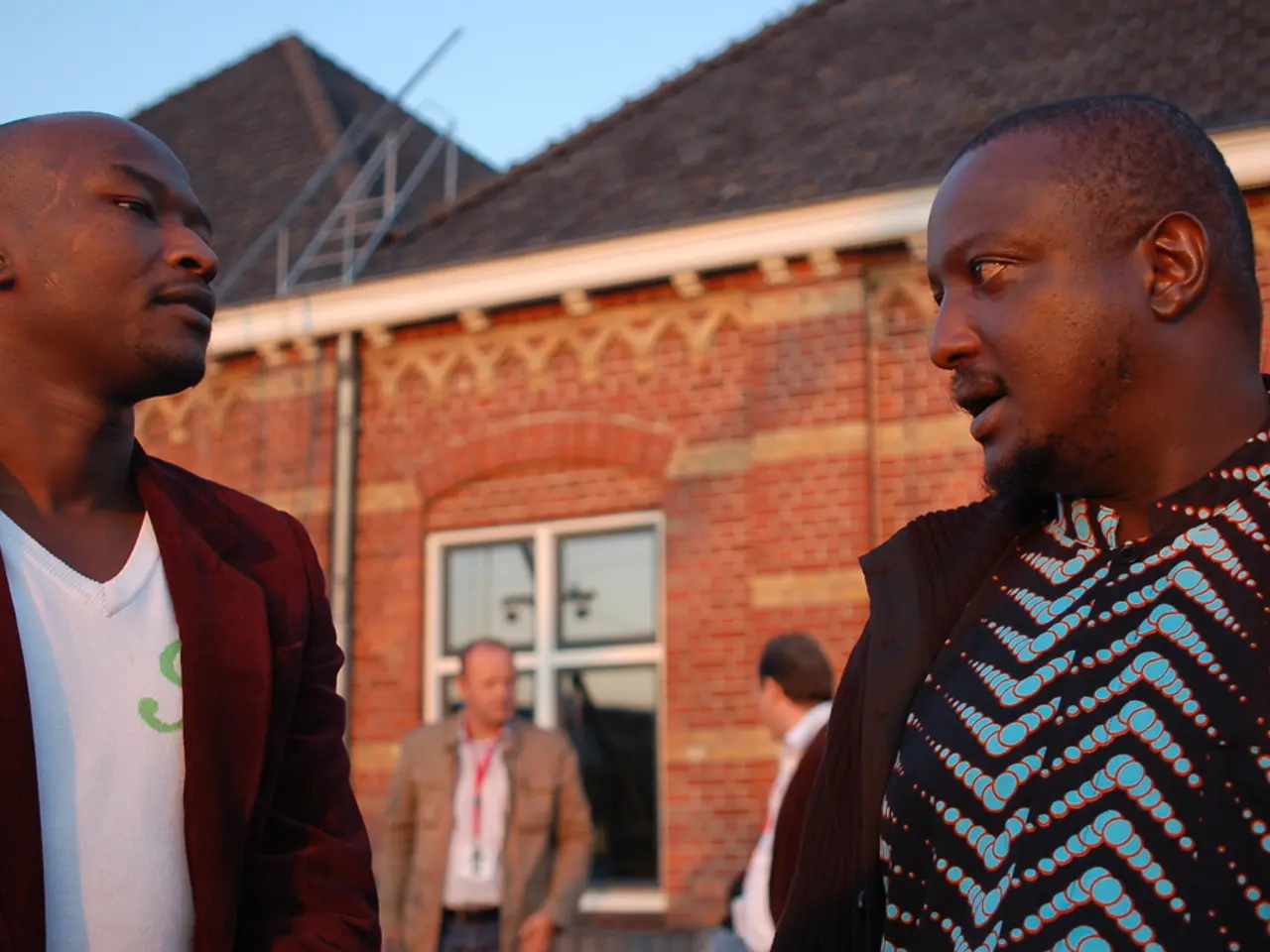Microsoft's Collaborative Agreement with OpenAI Deciphered
In the rapidly evolving world of artificial intelligence (AI), the OpenAI-Microsoft partnership is undergoing significant renegotiations, aiming to secure a long-term alliance that could extend beyond 2030 and the milestone of achieving artificial general intelligence (AGI).
The existing agreement between the two tech giants is set to expire either by 2030 or upon OpenAI's announcement of AGI attainment. To mitigate this, Microsoft and OpenAI are negotiating an extended and more comprehensive partnership that would secure Microsoft’s AI access rights long-term.
Microsoft is seeking to increase its equity stake in a restructured OpenAI entity, reportedly aiming for around a 30% ownership portion. This expanding stake would intensify Microsoft’s influence over OpenAI’s governance and technology commercialization strategies, especially as OpenAI transitions from a nonprofit mission-driven organization toward a full commercial enterprise.
The revised deal includes provisions such as a right of first refusal that allows OpenAI to entertain other cloud partners but empowers Microsoft to match or exceed competing offers. This balance preserves Microsoft’s dominant position while granting OpenAI some flexibility.
However, the negotiations face multiple challenges. Regulatory scrutiny and competitive tensions are on the rise, partly triggered by OpenAI’s recent acquisitions and concerns about anti-competitive impacts. Moreover, OpenAI’s planned conversion into a public-benefit corporation requires Microsoft’s approval, linking governance changes with Microsoft’s negotiating leverage.
The strategic alignment around AGI-related clauses could influence how IP rights, ethical governance, and the commercialization of next-generation AI systems unfold industry-wide, potentially shaping regulatory frameworks and competitive dynamics. Antitrust and regulatory oversight are likely to intensify as Microsoft solidifies its partnership with one of the leading AI developers.
Meanwhile, leading tech companies are building in-house AI capabilities to compete with and reduce dependence on AI labs like OpenAI. Microsoft is also developing its own competing AI models. Balancing partnerships and internal capabilities is important for businesses in 2025 to leverage AI effectively.
Businesses should consider a multi-cloud AI strategy, as AI infrastructure is diversifying across cloud providers, with Oracle emerging as a key player alongside Azure. Building in-house AI expertise and models can help businesses maintain competitiveness.
Navigating the AI landscape strategically is crucial for businesses in 2025 to harness AI's potential. Continually assessing the evolving AI ecosystem is essential for businesses to adapt and thrive in this dynamic field.
[1] VentureBeat. (2025). OpenAI and Microsoft renegotiate partnership to secure long-term alliance. [online] Available at: https://venturebeat.com/2025/06/15/openai-and-microsoft-renegotiate-partnership-to-secure-long-term-alliance/
[2] TechCrunch. (2025). Microsoft and OpenAI extend partnership, aim for AGI-proof deal. [online] Available at: https://techcrunch.com/2025/06/15/microsoft-and-openai-extend-partnership-aim-for-agi-proof-deal/
[3] Wired. (2025). Microsoft's AI future: The OpenAI deal, Azure, and Copilot. [online] Available at: https://www.wired.com/story/microsoft-openai-deal-azure-copilot/
[4] The New York Times. (2025). OpenAI's transformation: From nonprofit to for-profit, backed by Microsoft. [online] Available at: https://www.nytimes.com/2025/06/15/technology/openai-microsoft-deal.html
- The extended partnership between Microsoft and OpenAI could significantly influence the scale of product development in the AI sector, as both parties aim to secure long-term strategic investments in the future of artificial general intelligence (AGI).
- As part of the renegotiated agreement, Microsoft is reportedly looking to increase its equity stake in OpenAI, which could have implications for the management and commercialization of the product models, particularly as OpenAI transitions to a full-scale business enterprise.
- The revised deal between Microsoft and OpenAI includes provisions that balance their interests, such as a right of first refusal, ensuring Microsoft's dominance while granting OpenAI some flexibility in entertainining cloud partners.
- Besides this, the negotiations are faced with challenges like regulatory scrutiny, competitive tensions, and concerns related to anti-competitive impacts, partly due to OpenAI's recent acquisitions, potential impacts on the finance sector, and the conversion of OpenAI into a public-benefit corporation, which requires Microsoft's approval.
- As a strategic response, businesses in 2025 are considering multi-cloud AI strategies, utilizing various AI infrastructure offerings across providers like Azure and Oracle, while also developing in-house AI expertise and models to maintain competitiveness and navigate the evolving AI landscape.




